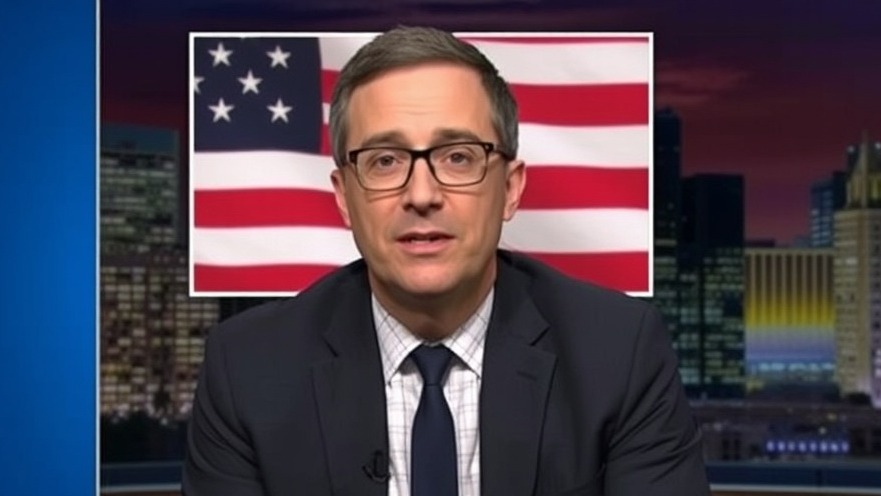
Understanding John Oliver's Critique of US Immigration Detention
In the latest episode of Last Week Tonight, comedian John Oliver targets the deeply troubling state of US immigration detention, particularly under the Trump administration. His remarks shed light on the often-ignored human cost of extensive deportation tactics that have come to define this political era. His critique reveals a system many Americans have become desensitized to — but should not overlook.
The Scope of Immigration Detention in America
Oliver emphasizes that, despite legal claims that detention is not punishment, the reality paints a different picture. The unyielding nature of the policies leads to conditions akin to imprisonment for individuals who may simply be seeking asylum or a better life. With Trump’s plans to initiate what he describes as the "largest deportation operation" in US history, Oliver points out a sobering statistic: America holds the "world's largest immigration detention system," which, astonishingly, housed 260,000 individuals last year alone.
Legal and Ethical Implications of Detention
One of the most compelling points made by Oliver is the distinction between civil and criminal violations. Being undocumented is a civil issue, yet misconceptions perpetuated by the media and political rhetoric paint detainees as criminals, a narrative Oliver critiques sharply. This highlights an urgent need for a public that is informed about these complex realities. While Trump’s government is often seen as callous, our collective understanding of these laws may be equally lax, allowing these injustices to persist.
The Corporate Influence Over Detention Facilities
Over 90% of immigration detention facilities are privately owned—a fact Oliver states with incredulity. The reliance on private companies such as GEO Group and CoreCivic allows Immigration and Customs Enforcement (ICE) to shift the burden of management and oversight onto corporate entities driven by profit. This dynamic, he argues, enables exploitation, where detainees can earn as little as $1 a day for demanding labor while facing severe repercussions for refusal to work.
Living Conditions: A Deeply Disturbing Reality
Conditions in these facilities are concerning. Oliver points out that many detainees are kept in isolation for reasons as trivial as refusing to work, with reports of solitary confinement exceeding UN-set torture thresholds. These troubling facts urge the audience to connect with the plight of these individuals, who have often fled violence and persecution only to find themselves in further suffering. It raises questions about moral complicity in practices that many would otherwise consider abhorrent.
Future Implications and the Need for Change
As we reflect on Oliver's insights, the future of immigration policies under Trump's administration feels daunting. Nevertheless, Oliver encourages viewers to advocate for changes at the local and state levels as these communities grapple with federal directives. The onus lies not just on policymakers but also on the citizenry to demand humane treatment of immigrants and challenge narratives that dehumanize them.
Engagement and Mobilization: What Can You Do?
While John Oliver’s comedic tone often infuses his critiques with humor, the underlying message is gravely serious. Informed citizens must engage with these issues on both intellectual and emotional levels. Understanding the intricacies of immigration detention might seem overwhelming, but recognizing the human beings involved is paramount. Being aware and mobilizing support in advocacy and reform efforts can translate knowledge into meaningful action.
As we ponder Oliver’s compelling segment, consider the power of your voice in effecting change. Here’s how you can contribute: educate others, share information about these policies, and demand accountability. The haunting realities of immigration detention affect many lives, and an informed citizenry is crucial for fostering change.
 Add Row
Add Row  Add
Add 




Write A Comment